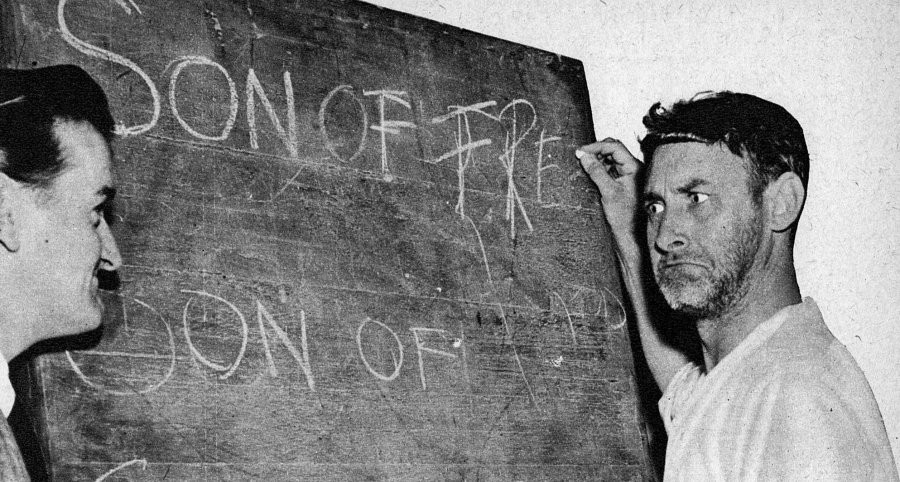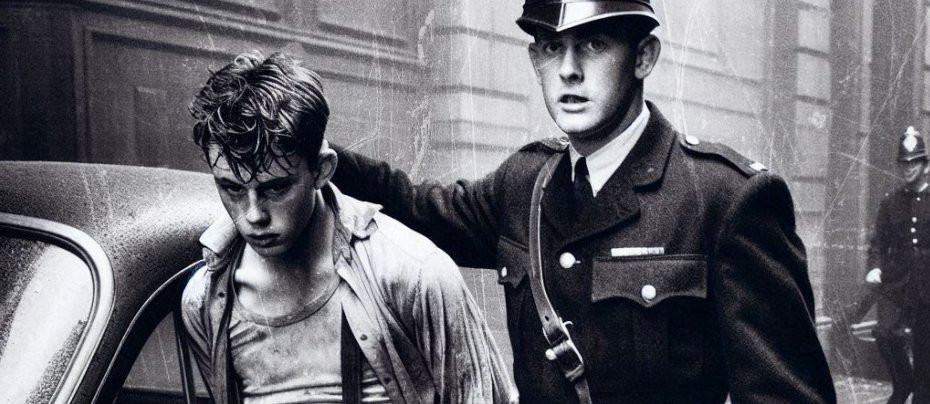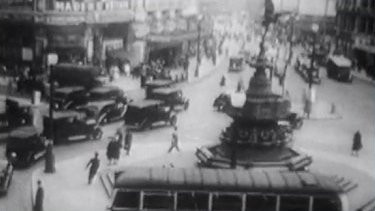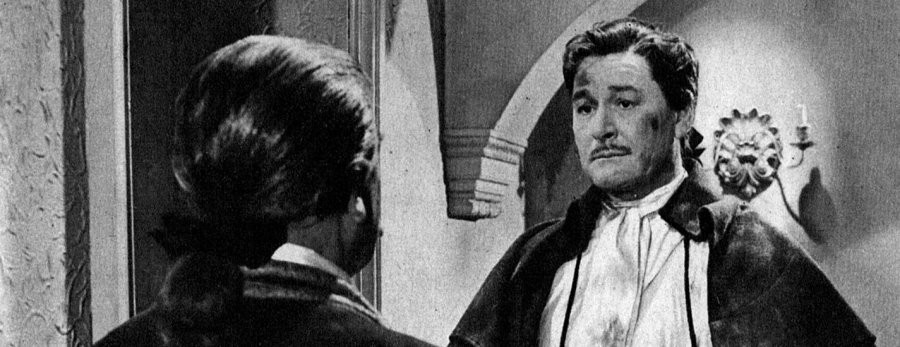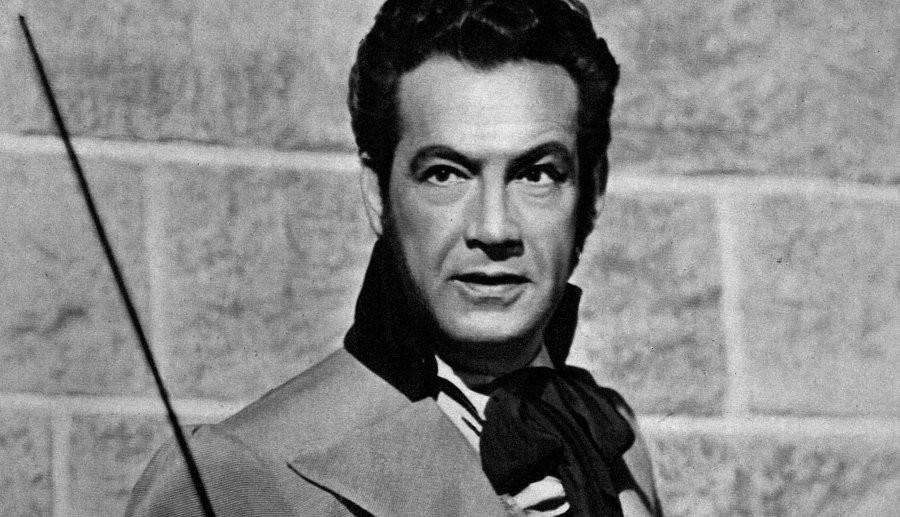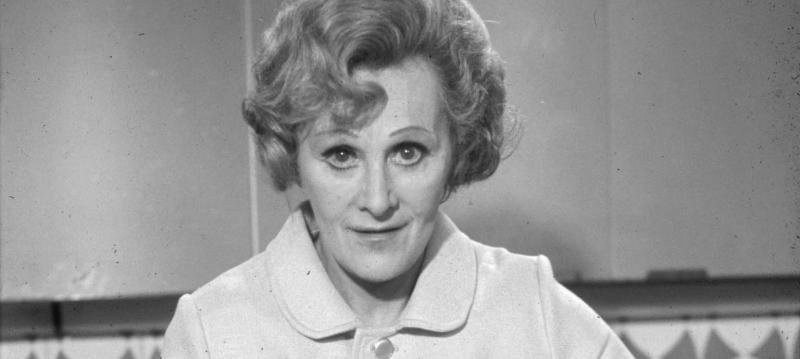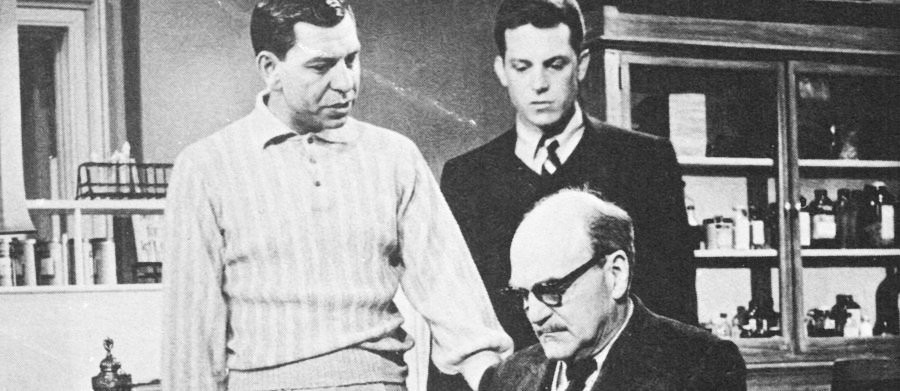
Cookery Lesson
1956 - United KingdomIntroduced by the bearded, round faced and exuberant Philip Harben, Cookery Lesson was a series of twelve programmes that introduced viewers to the basic principles of cooking, working from the assumption that the TV audience didn't even know how to boil an egg. Considering the country was still under ration-book rule at the time it is surprising that Harben's 'lessons' were so successful. Perhaps even more surprising is the fact that he was such a hit at a time when the kitchen was still seen as very much the domain of women. Just read the following paragraphs from the Television Annual for 1953:
When it comes to Philip Harben, the television cook, I fully expected my woman TV viewers to be roused to both criticism and resentment, because any man daring to invade the precincts of a woman's own particular province - the kitchen - is surely asking for it. But they not only like him, they are quite prepared, literally, to eat out of his hand!
I think this is because of his friendly, informal way of passing on vital information; he never talks down to his audience. He so obviously enjoys cooking, and telling us little stories about this and that, that we hardly realise we are being taught something new; and far from being resentful, we find ourselves licking the lipstick off our lips as yet another Harbenesque masterpiece comes out of the oven!
Philip Harben was born on 17 October 1906 to performing stage and screen parents Mary Jerrold (who appeared in the first stage presentation of Arsenic and Old Lace) and Hubert Harben. As a child, he spent much time in the kitchen with his parents' cook, while they were away on tour. "I could scramble eggs and make mayonnaise long before I could read Thucydides or solve a quadratic equation," he once said. After leaving school he worked briefly as a stage manager before embarking on a career as a photographer. At the age of 31, Harben changed career direction again to become the first cook to work at the Isobar restaurant in Belsize Park, London. The restaurant also served as a club for people who lived in the apartments above; among them was the writer Agatha Christie.
At the outbreak of the Second World War Harben joined the RAF. A wound to his eye in the early forties put an end to his career as a pilot. Unable to fly, he joined the Air Force catering division. When he was demobbed he approached the BBC and put himself forward as a cookery broadcaster for television (having previously done a cookery show on radio). "Why not?" was the response, and Harben embarked on his new career in June 1946 as television chef on the 20-minute programme Cookery (1946-51). In his first programme he showed viewers how to make lobster vol-au-vents! He was soon a runaway success, appearing weekly on both television and radio, writing prolifically, and doing cookery demonstrations around the country. His first cookery book was published in 1946 and over twenty more followed up until 1968.
Also in 1956, Harben presented What's Cooking for the BBC. Even though other TV cooks began to appear in the 1960s Harben continued to be successful and turned to ITV in 1964 with Headway, subtitled 'The Grammar of Cookery', thirteen episodes on the craft and theory of cooking. Harben's last programme for television was Thames Television's The Tools of Cookery (1968-69), a 20-minute afternoon series about making the best use of modern kitchens. A year later (on 27 April 1970), Harben passed away.
Seen this show? How do you rate it?
Seen this show? How do you rate it?
Published on December 5th, 2018. Written by Laurence Marcus - (Sources Include: http://www.telegraph.co.uk/foodanddrink/4810007/TVs-first-masterchef.html) for Television Heaven.



